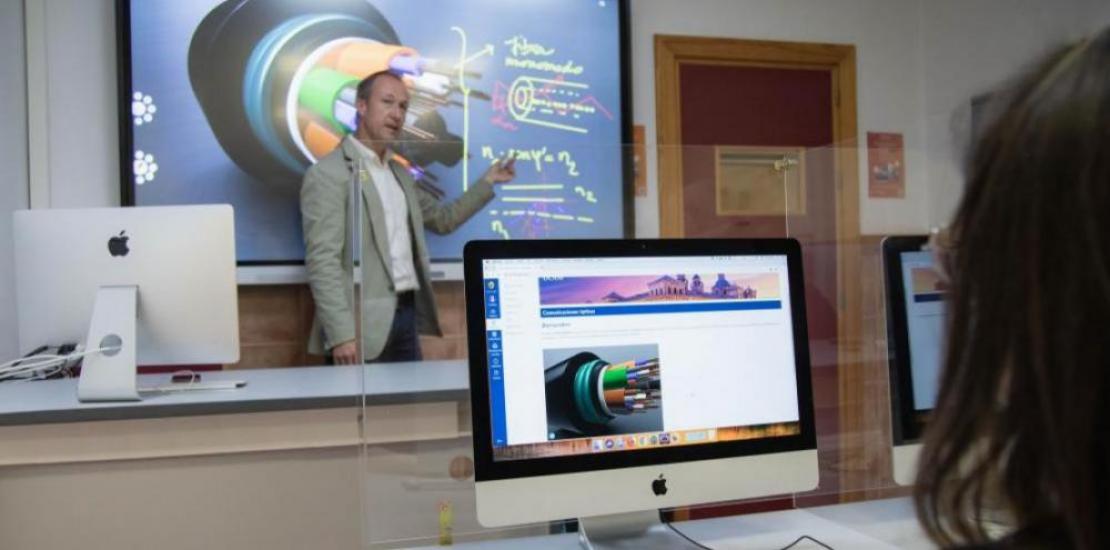UCAM now has the world's leading Virtual Campus
Canvas, used by universities in the United States such as Harvard, Stanford and MIT; or in the United Kingdom such as Oxford, Swansea and Newcastle; encourages teaching innovation and student participation
In its 25 years of history, UCAM has always been a university in continuous evolution and a pioneer in its commitment to new technologies applied to higher education. Its aim is that the implementation of these tools will further strengthen the teacher-student relationship in the interest of a better all-round education.
In this sense, one of the innovations for the academic year 2022-23 is the implementation of Canvas as the new Virtual Campus. This platform, used by many of the best universities in the world, represents an evolution as an online learning management system. One of its main features, which sets it apart from other similar applications, is that it encourages teacher innovation and student participation.
How does it do that? Mainly by providing teachers with a series of tools to make their content more attractive and interactive for students, all in a much simpler environment, which improves user experience and facilitates access to content. All this, with the added advantage of having all options available and operational on the mobile version. For this reason, Samuel Mendoza, director of ICT and Multimedia at UCAM, emphasises that "it is such an intuitive tool that you feel like using it; this software puts the student and the teacher at the centre of user experience".
In addition, teachers will have their own application, which they can access through their smartphones, to upload syllabuses, correct exams or reply to their students' messages. Another aspect that will improve the teacher-student relationship is the easy access to a large amount of information on student activity, allowing the creation of an early warning and attention system, e.g. to prevent drop-outs. The system can issue alerts when a student's activity drops considerably, informing the teacher so that he or she can monitor the situation in a personalised manner. The aim of this is to take advantage of the opportunities offered by technology to promote the personalised and tutored teaching model that characterises UCAM, both in its on-site and online modalities.
Teacher training
The process of implementing Canvas is already underway and will conclude with the training of university faculty members to maximise the potential of this new tool. Assessment by competencies or access to a series of statistics that offer a large volume of information at a glance are two new features. This will allow the teacher to make better use of his or her time by not having to browse through different windows in search of information. Technology is placed at the service of the teacher and the student, not the other way around.
Strategic Digital Transformation Plan
The incorporation of this new virtual campus is another step forward in UCAM’s commitment to the use of the most innovative tools for higher education. This step follows others that have already been taken, such as the installation of Wi-Fi 6 on the Murcia and Cartagena campuses, to enable maximum connection speed, and the installation of the latest generation digital whiteboards in all the classrooms, as well as the first real classroom experiences in the metaverse. In addition, the entire academic community (students and staff) has the most widely used application packages in the world (Google's G Suite and Microsoft's Office) to use both on the cloud and on their personal devices. All of these advances are applied in different areas of university education, highlighting clinical simulation in which UCAM is currently leader in Spain.




